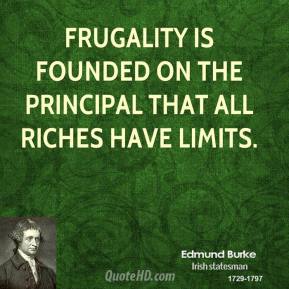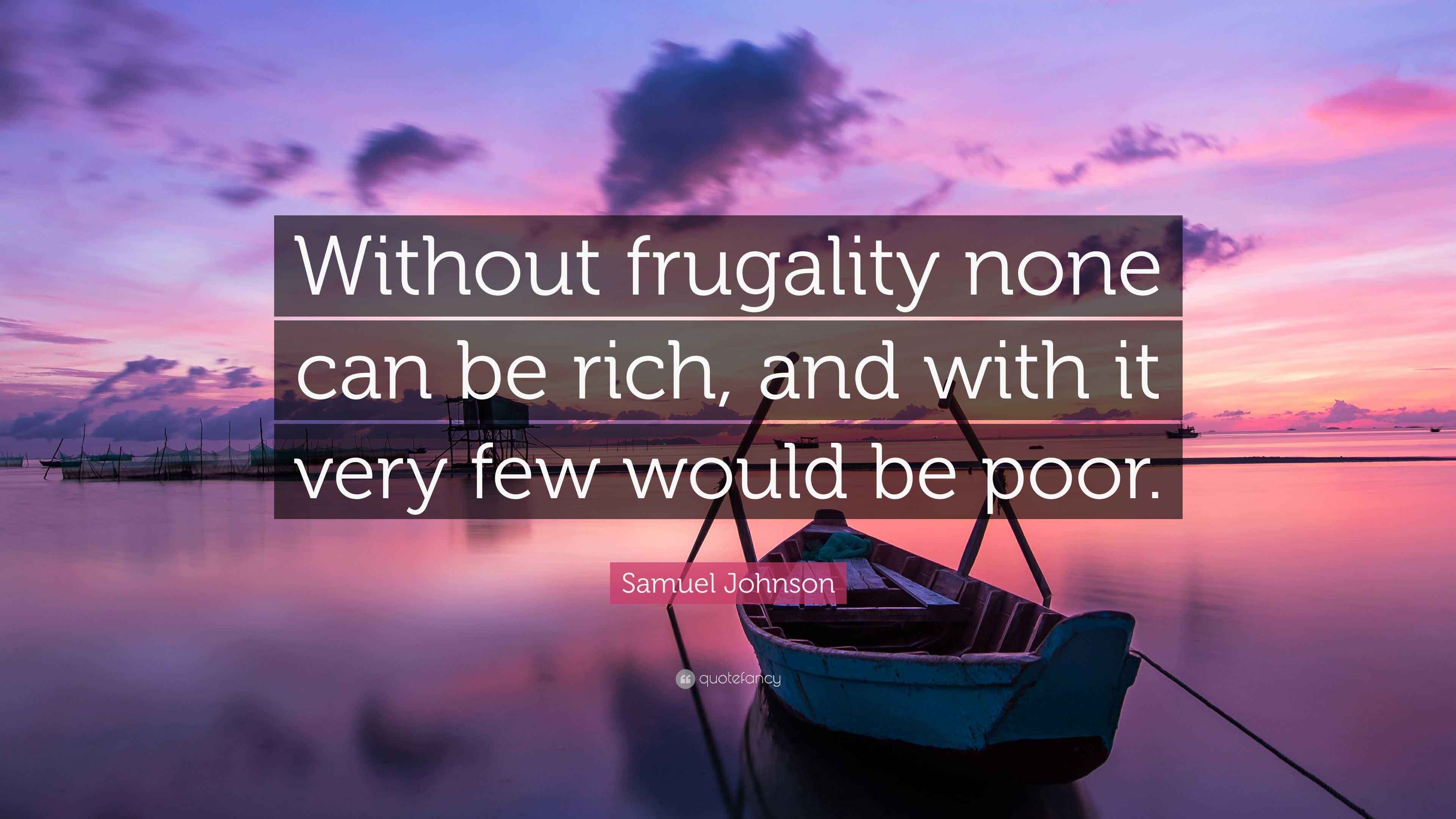
‘A deadly force is taking over our world. This is a monster that can do too much harm to be so commonly welcomed into our society, and it goes by the name “Materialism.” The scariest thing about materialism is that it is so easy to fall into, especially in this day and age. So you ask what is materialism? It is a fixation on and love for material objects over actual living things.’…
How Much Is Enough? What is money and wealth for? Why do we as individuals and societies go on wanting more? What is economic growth for? Can we/ should we carry on just growing, creating, producing, consuming,…,more and more, for ever more? Do we need to satisfy our needs or our wants? Should we be a “maximiser” or “satisfier” and choose the path of “enoughness”? Then, what is a good life? What are the main ingredients of a good, happy and peaceful life? Should we move away from Gross National Product (GDP) to Gross National Happiness? What are we here for?
How Much is Enough? Money, Materialism, Frugality and the Good Life

Graham Music, a psychotherapist, has written a book called The Good Life Wellbeing and the new science of altruism, selfishness and immorality. It confirms, through use of data collected by scientists over the last 40 years, what we have all long suspected from anecdote and our own eyes: the materialistic tend to be unhappy, those with material goods will remain unhappy, and the market feeds on unhappiness. It is an outreach programme for personal and political desolation; and it is, so far, an outstanding success. Peel away the images of the gaudy objects and find instead a condition. Reading Vanity Fair, I deduce, is now mere collusion with the broken.
Tim Kasser, for instance, a psychology professor at Knox College, Illinois, notes that if you love material objects, you are less likely to love people and so, of course, the planet. The connection between the rise of materialism and indifference to the environment is not coincidental; nor is the connection between the rise of materialism and growing inequality, and fear of the stranger, which expresses itself here in a despicable loathing for the Roma, for instance, and there in a fashionable fetish for Ukip. Money is a brutalising agent and a paranoiac drug.
And so it drips down, an infection swallowing happiness and peace. Inequality leads to an erosion of trust between people. When you couch a premise in the language of the market, people become more suspicious and less kindly. This is potentially disastrous, as public services are sold and patients find themselves transformed into consumers. In one fascinating study, people were asked to imagine a hypothetical water shortage; those described as "consumers" were less likely to share the hypothetical water than those described as "individuals".
Even the language corrupts. Advertising ratchets up the stress, and places us in imagined competition with each other. It encourages yet more materialism, which follows the paths of drug addiction: it offers a false promise of ecstasy, and it does not work. The more we spend on unnecessary material goods, the less happy we are. Mental illness, narcissism and dissatisfaction instead follow.
Here, then, is a world wrought in the image of Dr No.
"Those with more materialistic values consistently have worse relationships, with more conflict," Music writes. "This is significant if the perceived shift towards more materialistic values in the west is accurate." We cannot say we were not warned.
*The above exerpts are from an article by Tanya Gold which was originally published in The Guardian 7 May 2014
How materialism makes us sad | Tanya Gold | Comment is free | The Guardian
What Does Materialism Do To You?
“A deadly force is taking over our world. This is a monster that can do too much harm to be so commonly welcomed into our society, and it goes by the name “Materialism.” The scariest thing about materialism is that it is so easy to fall into, especially in this day and age. So you ask what is materialism? It is a fixation on and love for material objects over actual living things.
We live in a time where a conversation via iPhone takes precedence over the face-to-face conversation. I mean this in the sense that not only are in-person conversations few and far between, but when they actually do occur, often a person will stop mid-conversation to answer the phone or text someone else. When did this become socially acceptable? On top we obsess about materialistic goods. There is a fine line in enjoying beautiful things and obsessing over them. If you are always looking for owning the latest thing the magazine displays or your favorite celebrity is showing off than you are in a materialistic mode.
What are the negative effects of this? How does it hurt us as people and as a society? The list goes on and on, but here are a few big effects that I hope will at least make you think so you don’t sucked into the materialistic trap.
1. Lost perspective. Materialism warps your brain. It leads you to believe that you should care more about money, clothes, fancy cars, and other superficial items rather than your friends, family, co-workers, etc. This can cause strains in relationships and even tear some relationships apart. You can also lose sight in what you are passionate about and force you into apathy because you are too focused on filling your house up with “stuff” to have the energy to pursue your goals and ambitions.
2. Lost time. If you find love in objects, you spend time with them that you could be spending with actual human beings who have the ability to love you back. You could also be spending this time working towards achieving your dreams instead of sitting on twitter and keeping up with the Kardashians. Trust me, if you spend all of your time watching them, you’ll never keep up with them. Step away from the inanimate objects so you can accomplish your true purpose and have the Kardashians trying to keep up with you.
3. Unnecessary judgment. This one is huge. Materialism causes you to take other people at face value. It encourages you to judge them based solely on the way they dress, the house and car they own, and whether they have the newest gadget. Appearances are deceiving, and you never know a single person simply by assessing the things they own. A person’s worth should never be based on materials, but that is what materialism does. It is completely superficial and does not care about what is on the inside.
4. That green monster. Oh yes, materialism breeds jealousy in every way shape and form. When you are fully materialistic, not only will you judge others based on their possessions, but you will also judge yourself in that way. It is easy to see someone who owns more than you and become instantly jealous, but you don’t know if that person is actually happy. Possessions are not the source of happiness, far from it, but materialism will blind you to that fact and think less of yourself if you don’t have a house like J-Lo’s.
5. Breeds negativity. This one basically sums up all of the above points into one. Nothing good ever comes from fixating on objects that have no true worth. All that does is make people resentful and judgmental – two qualities that I cannot think of in a positive light. If this world needs more of anything, it is positivity, not “stuff.”
As you can see, materialism has many consequences and tends to bring out the nastier, superficial side of people. It evokes isolation, envy, judgment, and pessimism, and who can be happy when surrounded by those traits? It is important to take time every day to step away from those small, irrelevant things and focus on the big picture. Pay attention to what is going to get you where you want to go in your life. I will tell you one thing, no matter what your greatest desire is, personal or professional, material items are not going to get you there. If anything, they will only get in your way.”
*This article was originally posted at iaam: (Self Esteem: 5 Ways Materialism Hurts You - Blog | iaam)
Read also: HOW MATERIALISM IS DAMAGING YOUR RELATIONSHIP AND 5 TIPS TO FIX IT
‘The Dalai Lama was once asked what surprised him most. He replied: "Man, because he sacrifices his health in order to make money. Then he sacrifices money to recuperate his health. And then he is so anxious about the future that he does not enjoy the present; the result being that he does not live in the present or the future. He lives as if he is never going to die, and then dies having never really lived."
Now let me share with you the words and sentiments of a young executive, a CEO, earning a lot of money, with bonuses, power, and more: “Now it's all about Productivity, Pay, Performance and Profit - the four Ps – which are fuelled by the three Fs: Fear, Frustration and Failure. Just sometimes I wish that in the midst of these Ps (& Fs), there was some time left for another set of four Fs: Families, Friends, Festivals and Fun.”
You see ladies and gentlemen, we need values, we need love, friendship, kindness, generosity, sympathy, empathy, and compassion to be the guiding principles of all we do. Otherwise, no amount of money, capital, technology, IT, theories and policies, can save us from our own mistakes, the crises of our own making.’…
Read more:
'Thrift began with civilization. It began when men found it necessary to provide for to-morrow as well as for to-day. It began long before money was invented.' ~Samuel Smiles, Thrift, 1875
Frugality: The Timeless Lessons from the 18th Century Britain
